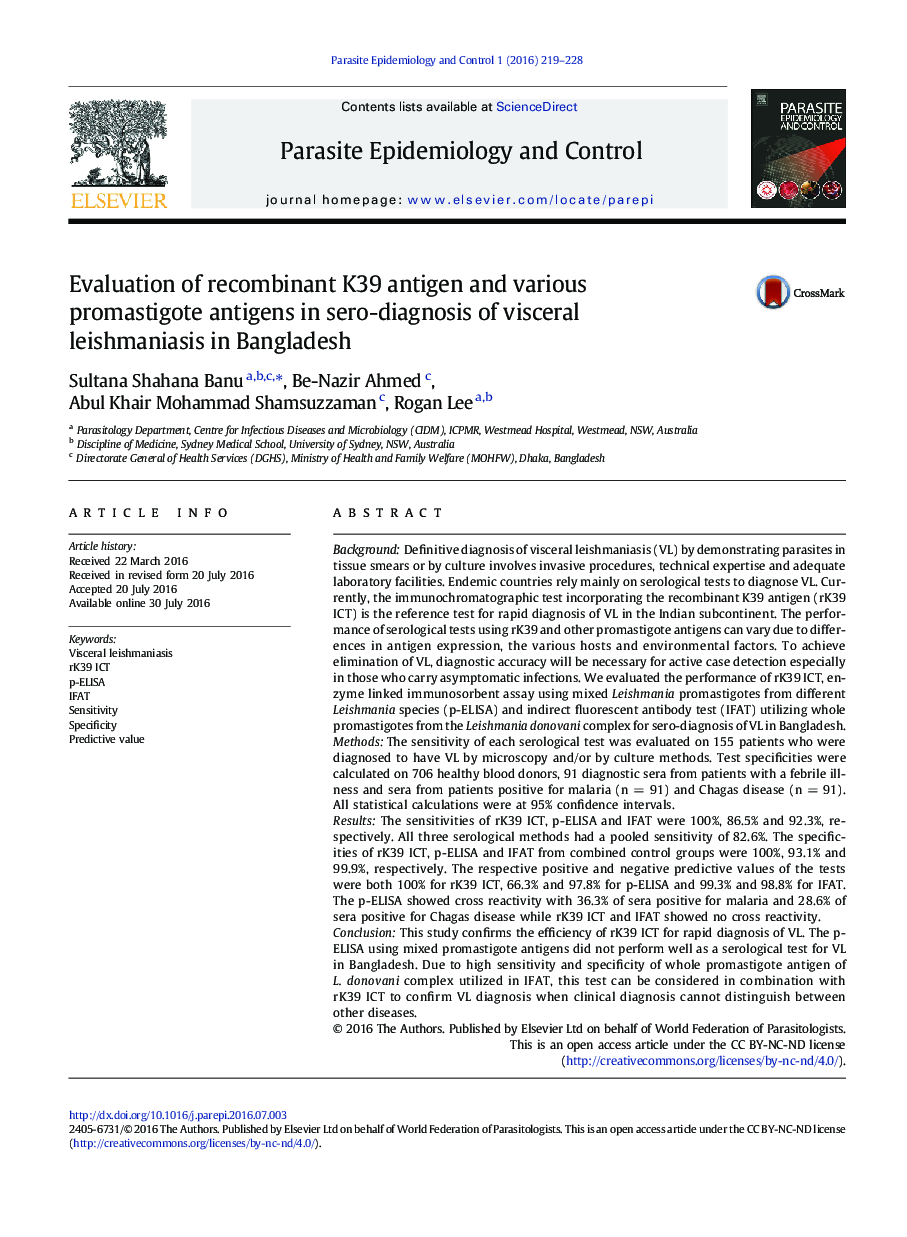| Article ID | Journal | Published Year | Pages | File Type |
|---|---|---|---|---|
| 2473648 | Parasite Epidemiology and Control | 2016 | 10 Pages |
BackgroundDefinitive diagnosis of visceral leishmaniasis (VL) by demonstrating parasites in tissue smears or by culture involves invasive procedures, technical expertise and adequate laboratory facilities. Endemic countries rely mainly on serological tests to diagnose VL. Currently, the immunochromatographic test incorporating the recombinant K39 antigen (rK39 ICT) is the reference test for rapid diagnosis of VL in the Indian subcontinent. The performance of serological tests using rK39 and other promastigote antigens can vary due to differences in antigen expression, the various hosts and environmental factors. To achieve elimination of VL, diagnostic accuracy will be necessary for active case detection especially in those who carry asymptomatic infections. We evaluated the performance of rK39 ICT, enzyme linked immunosorbent assay using mixed Leishmania promastigotes from different Leishmania species (p-ELISA) and indirect fluorescent antibody test (IFAT) utilizing whole promastigotes from the Leishmania donovani complex for sero-diagnosis of VL in Bangladesh.MethodsThe sensitivity of each serological test was evaluated on 155 patients who were diagnosed to have VL by microscopy and/or by culture methods. Test specificities were calculated on 706 healthy blood donors, 91 diagnostic sera from patients with a febrile illness and sera from patients positive for malaria (n = 91) and Chagas disease (n = 91). All statistical calculations were at 95% confidence intervals.ResultsThe sensitivities of rK39 ICT, p-ELISA and IFAT were 100%, 86.5% and 92.3%, respectively. All three serological methods had a pooled sensitivity of 82.6%. The specificities of rK39 ICT, p-ELISA and IFAT from combined control groups were 100%, 93.1% and 99.9%, respectively. The respective positive and negative predictive values of the tests were both 100% for rK39 ICT, 66.3% and 97.8% for p-ELISA and 99.3% and 98.8% for IFAT. The p-ELISA showed cross reactivity with 36.3% of sera positive for malaria and 28.6% of sera positive for Chagas disease while rK39 ICT and IFAT showed no cross reactivity.ConclusionThis study confirms the efficiency of rK39 ICT for rapid diagnosis of VL. The p-ELISA using mixed promastigote antigens did not perform well as a serological test for VL in Bangladesh. Due to high sensitivity and specificity of whole promastigote antigen of L. donovani complex utilized in IFAT, this test can be considered in combination with rK39 ICT to confirm VL diagnosis when clinical diagnosis cannot distinguish between other diseases.
